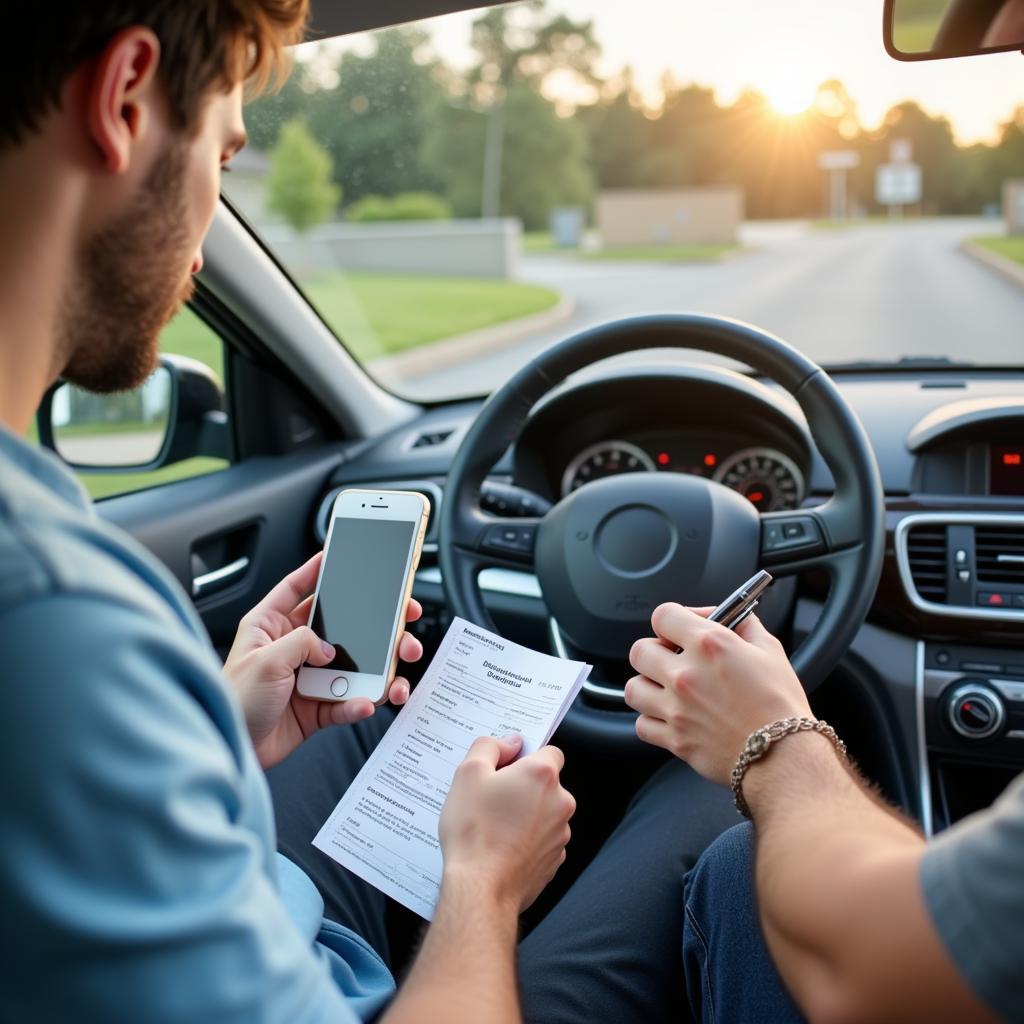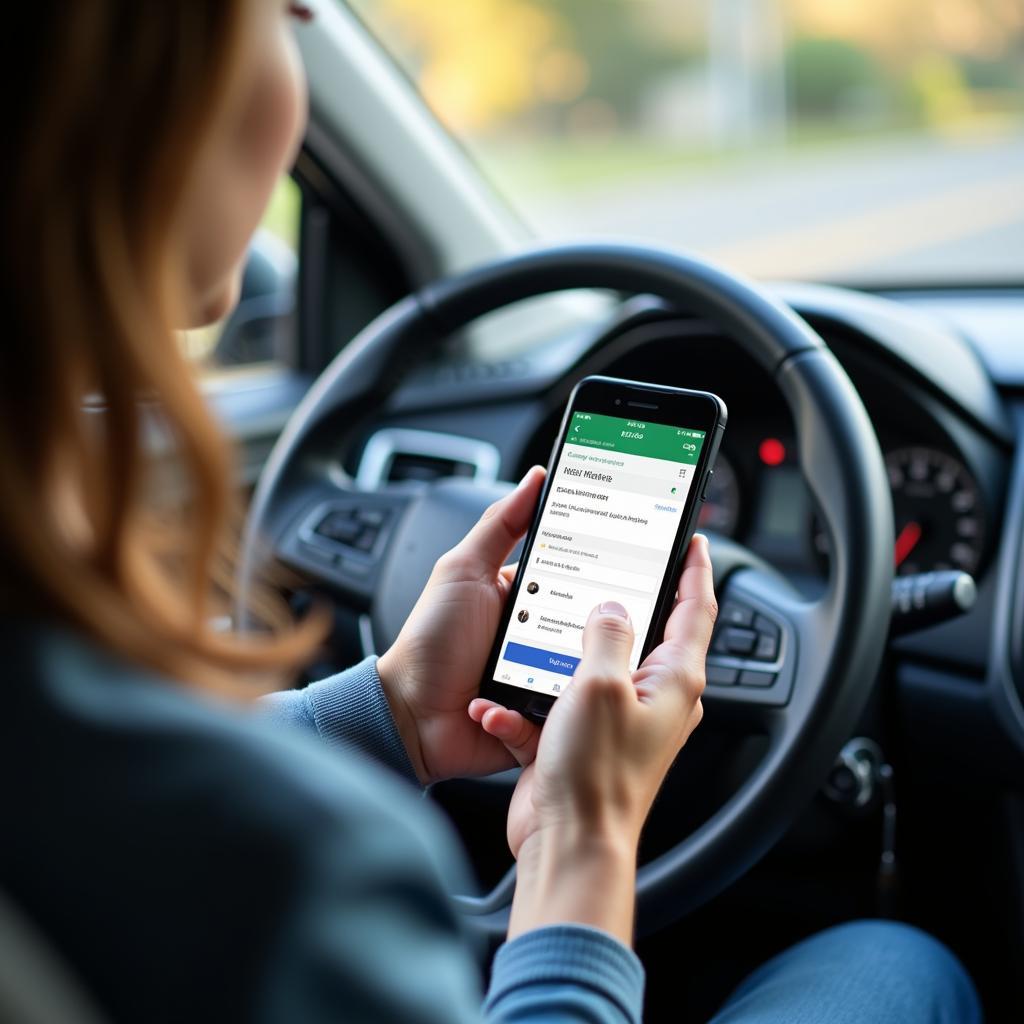Sharing your car insurance information isn’t always mandatory, but knowing when and how to do it is crucial. This article will guide you through the various situations where you might be asked for your insurance details, explaining your rights and responsibilities, and helping you understand the best course of action.
When are you legally obligated to provide your car insurance details? After a car accident, exchanging information with the other involved parties is typically required by law. This usually includes your insurance details. Failing to do so can lead to legal repercussions. It’s also important to remember that even if you believe you are not at fault, leaving the scene without exchanging information could be considered a hit-and-run offense.
However, there are situations where you are not legally required to disclose your insurance information. For instance, if someone simply asks for it out of curiosity or in a non-accident-related context, you are under no obligation to comply. Understanding your rights in these situations can empower you to protect your personal information.
What details should you provide after an accident? Typically, you’ll need to exchange your name, address, phone number, driver’s license number, and insurance information, including your insurer’s name, policy number, and contact information. What details do you give in a car accident? This article delves deeper into this specific situation, offering practical advice and checklists.
When Sharing is Necessary: Legal Requirements for Providing Insurance Information
Legally, providing insurance details is most commonly required after a traffic accident. This allows involved parties and law enforcement to quickly assess the situation and begin the claims process. Specific legal requirements can vary depending on your location. For example, do i have to give my car insurance details texas explains the specific regulations in Texas.
Protecting Your Privacy: When You’re Not Obligated to Share
While transparency is important, you also have the right to protect your personal information. You are not legally required to share your insurance details with just anyone. Situations like minor fender benders where no significant damage occurs may not necessitate exchanging insurance information. However, it’s always best to err on the side of caution and document the incident, even if insurance information isn’t exchanged.
 Exchanging Information After a Car Accident
Exchanging Information After a Car Accident
Dealing with Law Enforcement: What to Expect
If the police are involved in the incident, they will likely ask for your driver’s license, registration, and proof of insurance. Cooperating with law enforcement is crucial. Providing them with accurate information helps them conduct a thorough investigation and determine fault.
Handling Insurance Requests from Other Drivers
After an accident, other drivers involved have a legitimate reason to request your insurance information. This enables them to file a claim with their insurance company, even if you disagree about who is at fault. Refusing to cooperate can complicate matters.
 Driver Showing Insurance Information on Phone
Driver Showing Insurance Information on Phone
Do I have to give my car insurance details to a car detailer?
Generally, no. While you might share your details if making an insurance claim for damage during detailing, routinely providing it isn’t necessary. can you detail your own car? Detailing your own car can avoid such situations altogether. However, you should ensure the detailer has their own insurance to cover potential mishaps. what kind of insurance do car detailers carry? Understanding the insurance coverage of your detailer can help protect your vehicle.
“Transparency after an accident is important,” says Samantha Parker, a leading insurance claims adjuster, “but understanding your rights and responsibilities regarding information sharing is equally crucial.” Don’t feel pressured to share details unnecessarily.
 Reviewing Car Insurance Policy
Reviewing Car Insurance Policy
“Knowing when to disclose your insurance information is key to a smooth post-accident process,” adds Michael Davies, a veteran traffic attorney. “Seek professional advice if you’re unsure about your obligations.”
In conclusion, determining when to provide your car insurance details requires careful consideration of the situation. Understanding your legal obligations and protecting your personal information are both vital. By knowing your rights and responsibilities, you can navigate these situations confidently and effectively. Remember, “Do I Have To Give My Car Insurance Details” isn’t a simple yes or no question. The context matters.
FAQ
- What if the other driver doesn’t have insurance?
- Can I refuse to give my insurance details to the other driver?
- What should I do if I’m involved in a hit-and-run?
- Do I need to give my insurance details to a tow truck driver?
- Should I give my insurance details to witnesses?
- How do I obtain the other driver’s insurance information?
- What information should I collect at the accident scene?
You may also find these related articles helpful: what details to give in car accident.
Need further assistance? Contact us via WhatsApp: +1(641)206-8880, Email: [email protected]. Our customer support team is available 24/7.

Leave a Reply